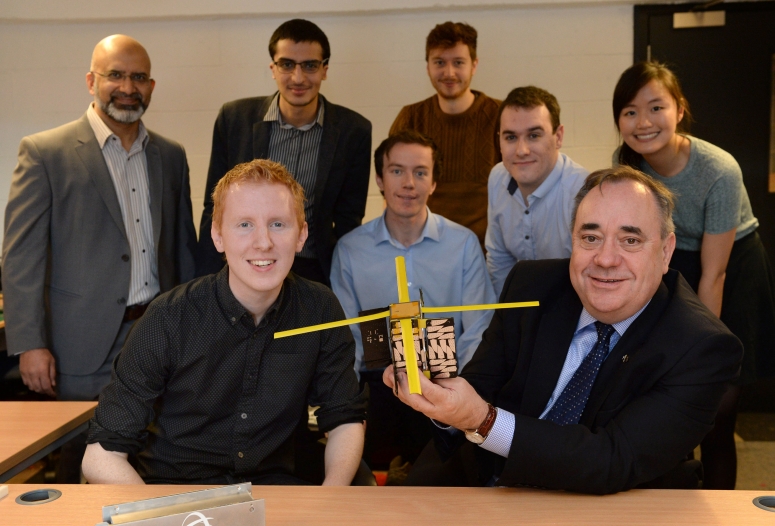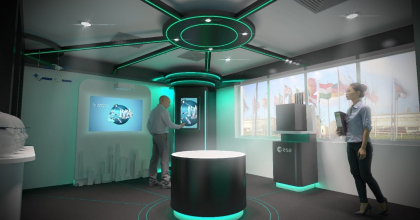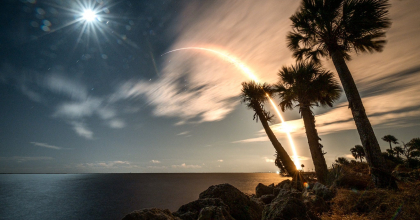
A Scottish startup, Alba Orbital, based in Glasgow, has built a tiny satellite called the Unicorn-1, which is about the size of a soft drink can and has a mass of 500 grams. This satellite is a so-called “pocketqube”, measuring only 5 by 5 by 10 cm. Having passed the preliminary Design Review and the Critical Design Review, the Unicorn-1 was presented to the public in October 2016 in the presence of Alex Salmond, former first minister of Scotland. The pocketqube will be included in the launch payload of a Russian Dnepr rocket scheduled for launch in early 2017 from Yasny.
The tiny spacecraft will orbit at an altitude of 600 km and has two payloads. The first is a receiver for Automatic Dependent Surveillance-Broadcast (ADS-B) signals, which aircraft use to broadcast positioning information and which can be picked up in space. The second is an inter-satellite terminal which will be used to communicate with Avanti’s Artemis, a telecoms satellite in geostationary orbit which was previously owned by ESA. The purpose of the mission is to demonstrate the capability of the PocketQube platform for inter-satellite communications and telecom applications.
The Unicorn-1’s design specification calls for a lifespan of three months, but practically speaking the pocketqube should operate for several years. There are precedents of such pocketqubes functioning perfectly for 20 months. Although Unicorn-1 is a very small satellite with a limited lifetime, this pocketqube project has stringently adhered to radio regulatory and space debris requirements, thereby setting a good example for future pocketqube activities.
The Unicorn-1 was developed with the support of ARTES Entry programme and Innovate UK, with the ESA contribution covering design, testing, and validation of the first flight model. ARTES Entry is ESA's programme that enables Small and Medium sized Enterprises (SMEs) to enter the field of satellite communications, be it with core technology, products, or downstream applications. The funding programme offers newcomers to ESA financial support for up to 75% (maximum €250,000) of the activity cost.
Tom Walkinshaw, 26, the founder and owner of Alba Orbital, started the business in his bedroom three years ago after graduating from university and wanting to work in the space industry. As he told the Glasgow Evening Times, “I couldn’t get a job in the industry in Glasgow so my only option was to start a company.” Alba Orbital currently has five full time staff and an office at The Whisky Bond, near Port Dundas.
“Working with ESA gives us great credibility in the industry,” says Walkinshaw. “This is really critical for small firms like ours.” He cites the extensive technical and business support provided by ESA staff as vital as well for his start-up.
“With ARTES Entry, ESA has been actively targeting the SME community,” says ESA’s Frank Zeppenfeldt, Technical Officer for the activity. “We're thrilled to see a small but enthusiastic business like Alba Orbital succeed in this way. It demonstrates the effectiveness of the ARTES Entry programme for the commercial success of newcomer SMEs.”




